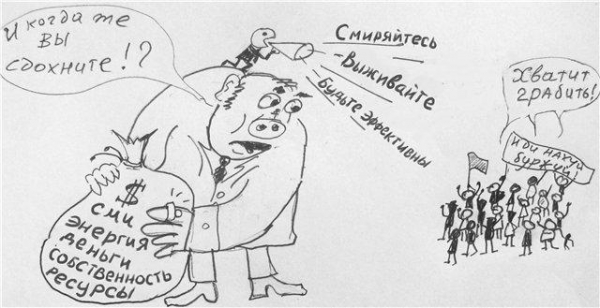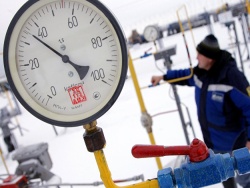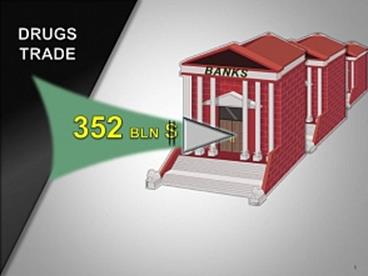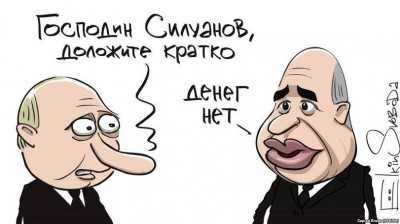
According to the Central Bank of Russia, the decline of GDP in the first quarter of 2016 amounted to 1.7-2%. Expectations of growth in oil prices had not yet been fulfilled, the crisis continues. What awaits Russia’s economy and not have the authorities, like the rulers of North Korea, to encourage residents to be ready to “have roots”? On the nature of the domestic crisis and the predictions about its depth and duration in an interview to “Rosbalt” was told by the Director of the Institute of strategic analysis Igor Nikolaev.
— How do you assess the situation in the Russian economy at the moment? What has improved or deteriorated recently?
— The situation is the same as before. The indicators slowly deteriorate. As for monthly figures, say, February, there was recorded a slight growth of industrial production by 1% just because it’s leap year and February, respectively, in it one day more. Therefore, the indicators a little higher than usual. So with absolute certainty we can say that this a small increase for certain types of economic activity (industry, agriculture, freight turnover) was purely due to the calendar factor. In a leap year 2004 2008, and 2012, in February was the same picture.
In other industries, unfortunately, we are in the red. In particular, this applies to real disposable cash income. Their fall almost 7% in annual terms to worry about. Is significantly reduced and the turnover of retail trade. Its fall for the year (for the same February, compared with February of 2015) was approximately 6%.
Thus the situation is not drastic, but still slowly getting worse.
— They say that there are some positive developments, but we see that, for example, in the banking sector — to the web, one of the institutional banks in the country, it took many billions of rubles of state support.
— He will certainly help (laughs)… although I must say that the whole banking system safety factor is still present. But we must remember that the state has no such opportunities to pump more money into finances, as it was during the crisis of 2008-2009 and even in 2015.
If you look at the crisis, in fact, a plan that was approved by the government on 1 March (although he is not called anti-crisis), the banks significantly reduced. But, again, while this area does not inspire serious concern, although there are also growing problems. Because, when the deteriorating situation in the economy, this leads to a reduction of the loan portfolio. In conditions when the state says that he has no money to help, it means that the situation in the banking sector precisely to improve will not be.
— And if you compare the situation in the banking sector during the 2008-2009 crisis and now when it was worse?
— Then was a massive recharge of the banks by the state, and they on the crisis even earned (and very good). Now it is not. Although it seemed then that everything is very serious and very bad. Today, it seems to me that, despite visible calm, the situation in this area worse than it was then. If only because banks are now not get such money that they earned in the crisis.
— As you know, Russia’s budget for this year was formed based on oil prices of 50 dollars per barrel, however for three months they remain in the area $ 40. I would like to hear your prediction on oil prices.
— I think that optimistic expectations on this occasion will be held. It turns out that scheduled for 17 April meeting in Doha (Organization of countries-exporters of oil — OPEC plus Russia), no significant results will bring. Stocks of oil and oil products in the world grow, the rate of economic growth in the U.S. and China continue to decline, and oil prices will play back. Therefore, in the course of the year the price of oil will fluctuate in the range of 30-40 dollars per barrel.
— Is there something other than oil that can stimulate the Russian economy today?
— Everything is very simple, anyway, in words. It is necessary to go from being the Russian crisis. This is a structural problem, is burdened by external shocks in the form of falling oil prices and Western sanctions. Oil prices, like I said, will remain low, sanctions in the foreseeable future seems to remain. Accordingly, we need structural reforms. And therein lies the problem. In power, the government, there is no understanding. It is not enough to say that we must “get off oil dependence”, when for so many years we sit on it, and is largely time wasted. Question, how are we going to get down?
It is necessary, for example, to increase the share of small enterprises in the economy. How are we going to do, if you really are fewer of them? We promise not to raise taxes on small businesses, arguing that social benefits will increase only from 2018. And try to calm small-scale entrepreneurs. But in fact for them it sounds, on the contrary, as a threat. What entrepreneur in his right mind would invest in manufacturing, if a half-two years it zhahnut taxes?
Thus, we can state that external shocks remain, while internal problems are not solved. So all that confusion with the crisis — for a long time.
Plus our internal problems may increase due to external — not so long ago, the IMF gave a negative Outlook for the world economy in the near future.
— You are absolutely right, I don’t even speak. The world economy is cyclical. She is now on the growth phase. After the last cyclical crisis has passed 7 years. But such crises have occurred in world at intervals of 7-12 years. So, really, a couple of years and the world economy will enter a stage of depression. What is happening now in China is slowing its economic growth is the harbinger of these processes. And this will be an additional negative factor for the Russian economy.








